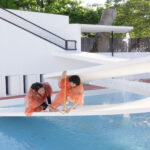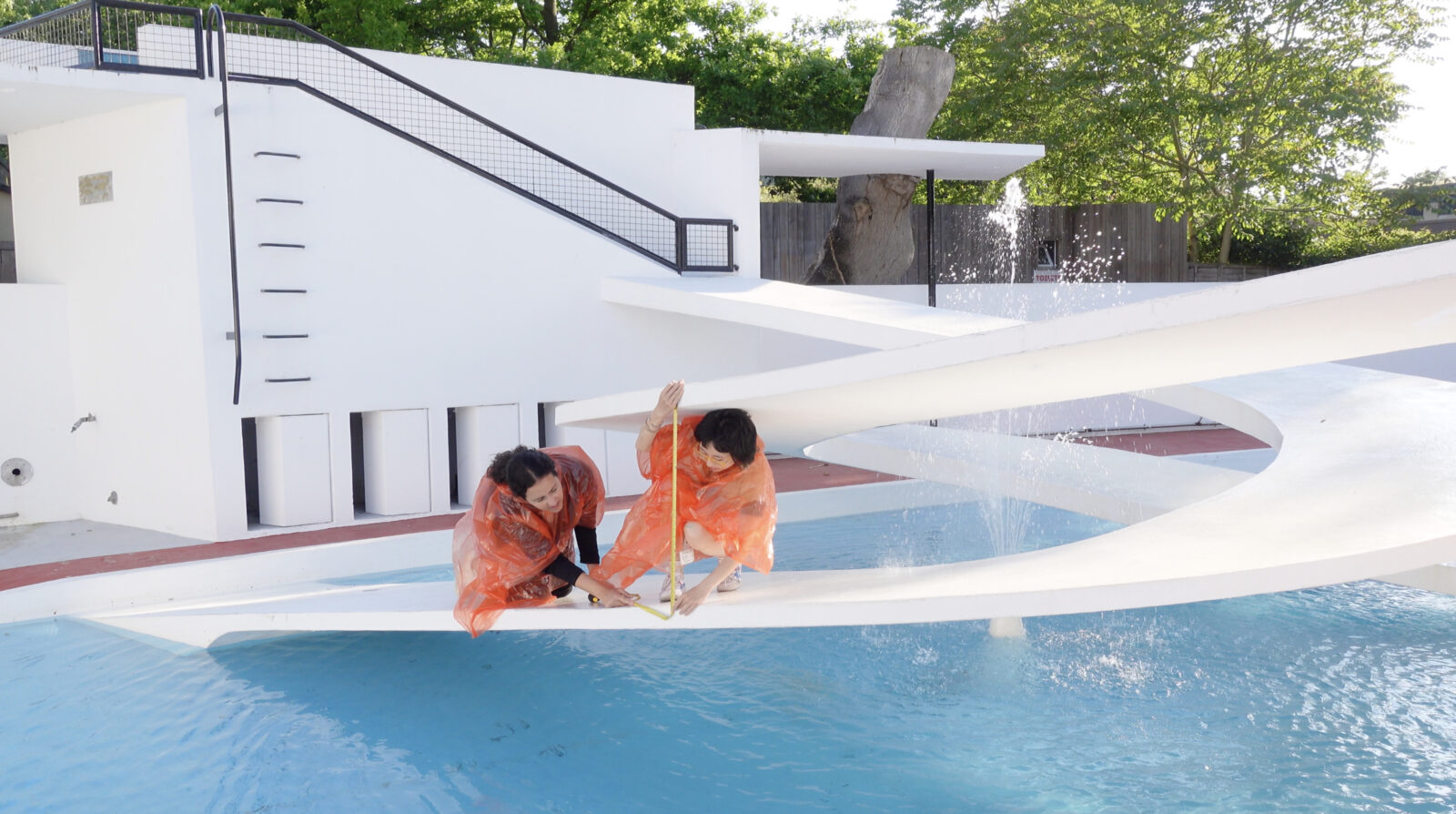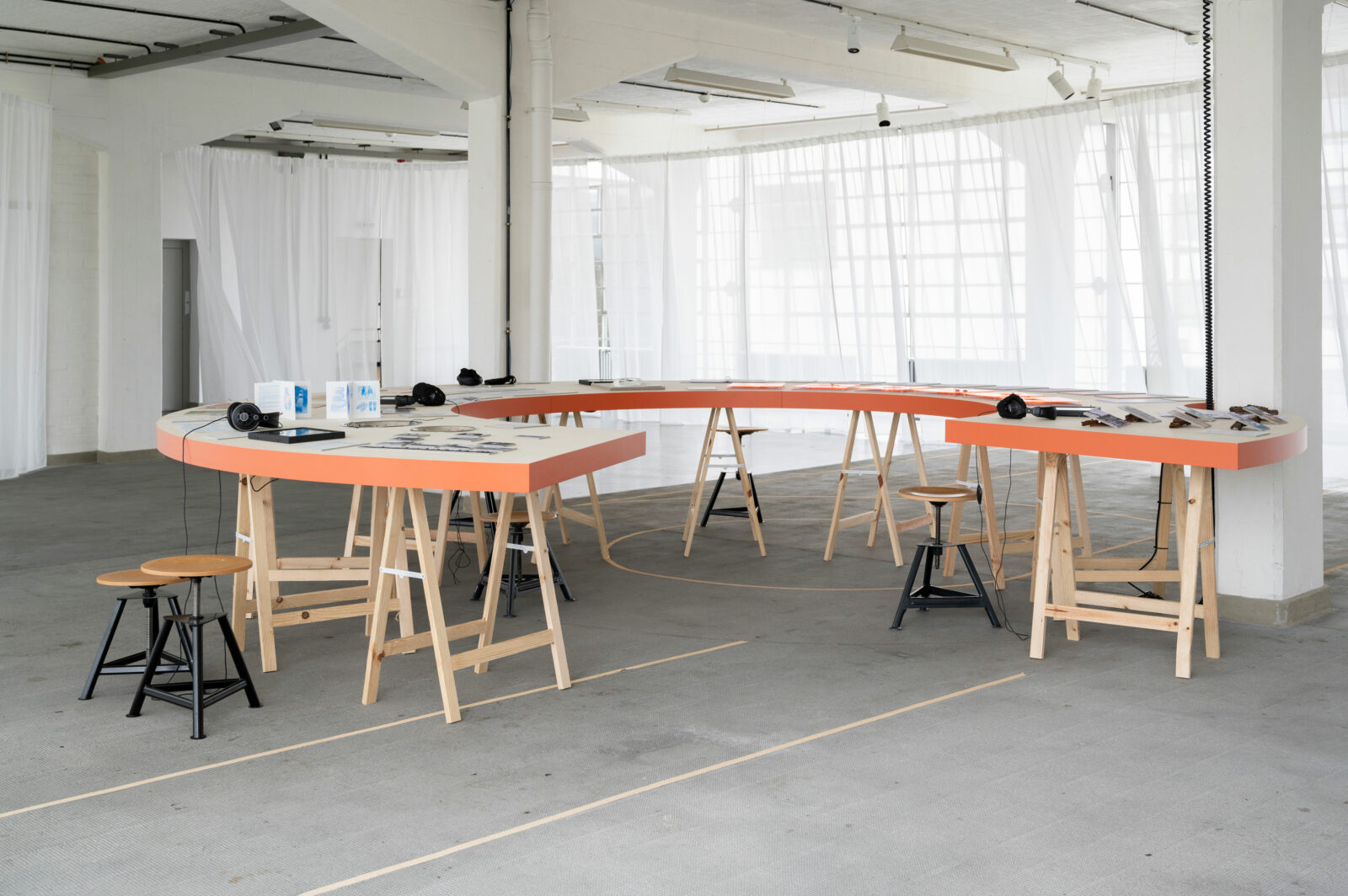The participants of the Bauhaus Lab 2023 are: Andrea Palášti, Daniella Camarena, Julieta Pestarino, Nicolás Penna, Patricia Roig Canepa, Sarah Kantrowitz and Yujia Bian, supported by Regina Bittner and Philipp Sack (Academy of the Bauhaus Dessau Foundation).
Not a Penguin Pool


Not a Penguin Pool.
Echoes of More-than-Human Entanglements
Echoes of More-than-Human Entanglements
21 Jul 2023 – 11 Feb 2024
Tue – Sun, 10 am – 5 pm (Nov – Feb)
Workshop wing, 2nd floor
In the Spring of 2023, a team of researchers were invited by the Academy of the Bauhaus Dessau Foundation to explore the early modernist Penguin Pool built by Berthold Lubetkin and the Tecton group in collaboration with Ove Arup 1934 at the London Zoo. In the years since, the structure has been well celebrated for its iconic architecture and well critiqued for its inadequacy in housing penguins, the last of which were removed in 2004. There is no such thing as a good design for a cage.
After praise and after critique, at the center of the bustling zoo, the quiet pool remains a darkly and comically alluring ghost. The research team entered the pool and its archives here, to notice, reflect and share subjective readings. Collectively, the exhibition explores epistemologies of the Penguin Pool through a spectrum of theoretical, biological, and cultural phenomena, between architecture, historiography, and more-than-human entanglements. These many ways of thinking about the pool are expressed in archival artefacts, artistic positions, texts and performative practices. The collectively devised display , a 1:1 scale transfiguration of the pool in the metal workshop creates a resonant space for the multiple conversations with the pool and its far-reaching geographies between the Zoo in London, the site of the exhibition in the Bauhaus Dessau, the Antarctic habitats the pool has taken from, and beyond.
Not a Penguin Pool: Echoes of More-than-Human Entanglements is a collective work developed by an international group of invited artists, architects, curators, and researchers. The 2023 Bauhaus Lab participants are: Andrea Palášti, Daniella Camarena, Julieta Pestarino, Nicolás Penna, Patricia Roig Canepa, Sarah Kantrowitz, and Yujia Bian, supported by Regina Bittner and Philipp Sack (Academy of the Bauhaus Dessau Foundation).
Contributors




The participation of Andrea Palasti was supported by the Culture Moves Europe grant of the Goethe-Institut and with the financial assistance of the European Union. The views expressed herein can in no way be taken to reflect the official opinion of the European Union.
